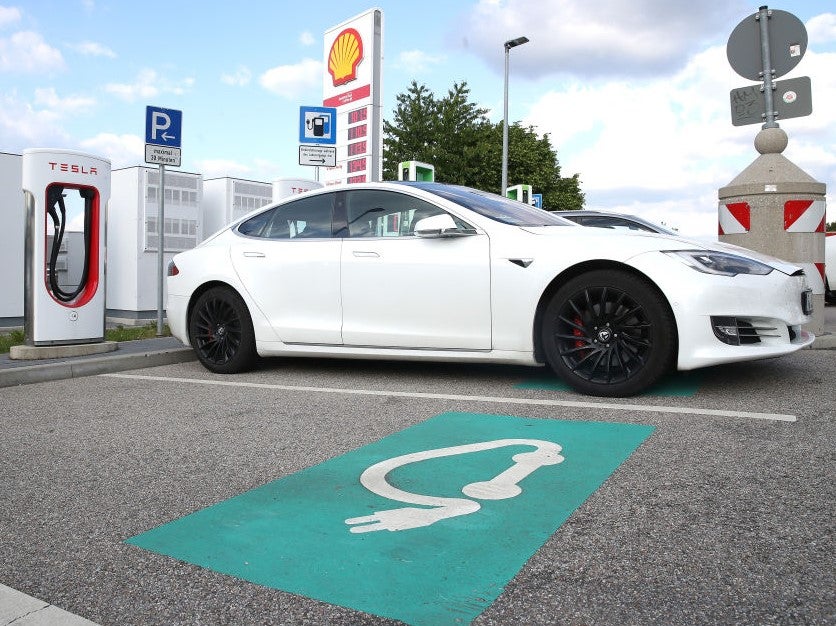Report: Banning petrol cars by 2030 would add billions to GDP and create 32,000 jobs. The government should listen
The notion that going green and preventing the planet from dying must be an economically damaging exercise has always been fallacious, writes James Moore


It isn’t hard to guess at the response of critics to this morning’s publication of a report finding that a 2030 ban on petrol, diesel and hybrid cars and vans would create 32,000 much-needed jobs and add a much-needed £4.2bn to GDP.
“Well they would say that,” or some variant is what we’ll likely hear.
Such a line is a cheap, easy and pathetically obvious ploy for those too blinkered to engage with the report’s conclusions, which is what I’m going to do.
First some background: a ban is on the way one way or another. The government has legally binding emissions targets to hit and it is currently targeting a petrol engine cut-off date of 2040 (which will also apply to vans).
Earlier this year, however, a consultation was issued with a view to bringing the date forward to at least 2035 and maybe even earlier.
Greenpeace commissioned Cambridge Econometrics, a management consultant which boasts former Bank of England policymaker Andrew Sentance as an adviser, to look at what might happen if it opted for “even earlier”. Specifically 2030, using the same modelling tools as the Department for Transport.
The consultancy compared the two years because 2035 would seem to be the most likely option as things stand.
There will clearly be economic benefits from bringing the ban forward by five years from the current target of 2040. The notion that going green and preventing the planet from dying on us must be an economically damaging exercise has always been fallacious.
The report, however, argues that the economic boost will be greater if ministers push the button earlier, and it doesn’t even focus on positives that would flow from cleaning up the foul air blighting UK cities through lower emissions. That’s worth mentioning because lower emissions mean fewer respiratory conditions burdening the NHS, and a better quality of life for millions.
So where do the purely economic benefits come from? A lot of them would flow from the need to more quickly create new infrastructure. Charging points, for example, at people’s homes or on street where they lack access to off-street parking.
A lower spend on imported fuel, and fuel duty, would, meanwhile, put money in people’s pockets that would feed through to the consumer economy. The beleaguered hospitality sector, for example.
The report argues that the net gain in income tax receipts from the new jobs will more than offset the losses from the duty, which the government is going to lose anyway by 2040 (currently) or 2035 (maybe).
It also holds out the prospect of a boost to the domestic automotive industry, which for me is less easy to see. Brexit means there mightn’t be much of one left by 2030 or 2035. But maybe I’ll be proved wrong about that, which would be nice.
Inevitably, such a move would entail brining forward investment into the new infrastructure and into reskilling the workers who will be affected by such a radical shift (so they can take advantage of the potential opportunities it will present).
But that’s fine, even if it means borrowing. Borrowing to invest is a good thing because it yields returns. The smartest countries and the smartest companies do it a lot. It would be refreshing if Britain decided to be among them for once.
It could happen if the government ignored the carping and paid less attention to the organisation that commissioned the report, more to its workings (particularly the use of its own modelling) and conclusions.
Now would be a very good time for it to play against type by opting for a bold, positive, progressive, but crucially also economically beneficial, policy.



Join our commenting forum
Join thought-provoking conversations, follow other Independent readers and see their replies
Comments